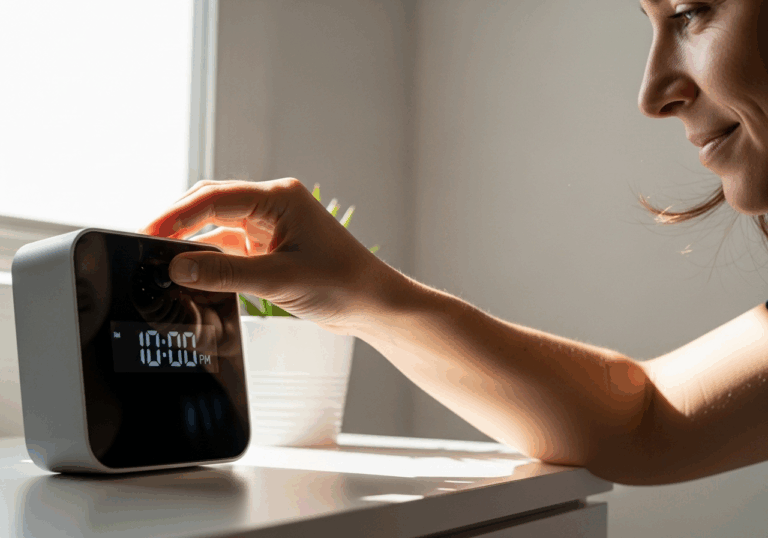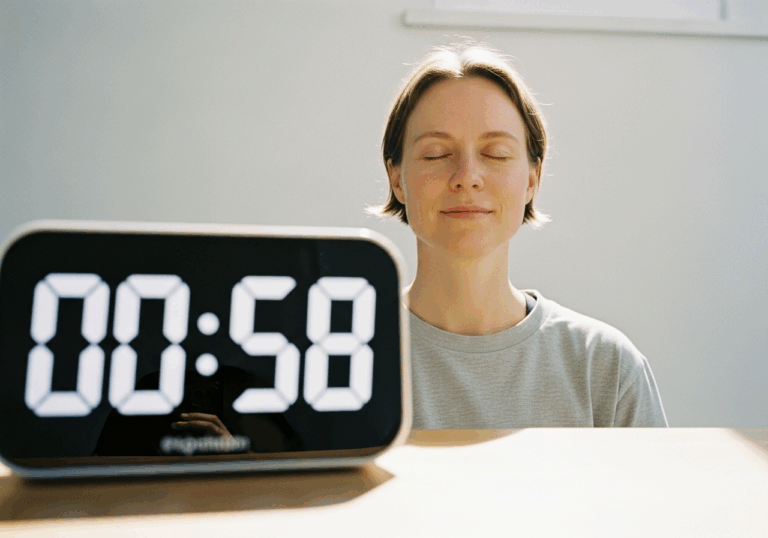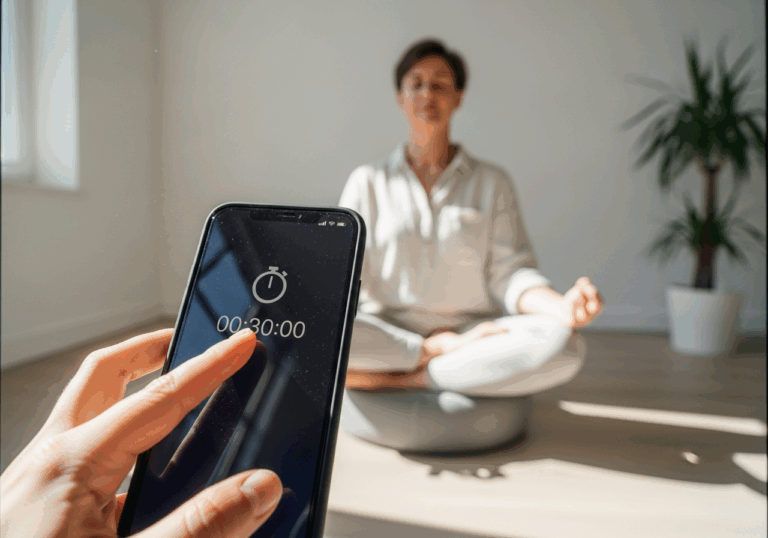Science-Backed Tips
Boost Focus with Mid-Task Breaks
Taking short breaks can enhance brain efficiency by 20%.
📊 Did you know?
💡 Why It Matters
1️⃣
Improving engagement scores by 15% can lead to better productivity in work settings.
2️⃣
Enhanced brain efficiency may reduce mental fatigue, improving overall job satisfaction.
3️⃣
Regular breaks can foster a healthier work-life balance, contributing to long-term wellbeing.
✅ Try These Micro-Tips
🎯
Take a 5-minute break every 25 minutes of focused work.
🎯
Incorporate a 10-minute walk during your lunch break to refresh your mind.
🎯
Practice deep breathing exercises for 2 minutes during work sessions.
🎯
Set a timer to remind you to pause and stretch every hour.
📚 The study
This finding is crucial, as improving engagement scores by just 15% can lead to remarkable increases in productivity within work settings.
Enhanced brain efficiency not only reduces mental fatigue but also boosts overall job satisfaction, making it essential for employers to encourage regular breaks.
By fostering a healthier work-life balance, these breaks contribute to long-term wellbeing, allowing individuals to recharge and return to their tasks with renewed vigor.
As we navigate the complexities of modern work, understanding the importance of breaks can transform our approach to productivity and mental health.
Embracing the power of a simple pause can lead to a more engaged, efficient, and satisfied workforce.
❓ Frequently Asked Questions ❓
Learn more
Why are mid-task breaks important for brain efficiency?
Mid-task breaks help preserve local brain network efficiency, which is crucial for maintaining focus and engagement. By taking short rests, individuals can prevent declines in cognitive performance during prolonged tasks.
How do breaks affect engagement scores?
Regular breaks can improve engagement scores by up to 15%, which can significantly enhance productivity in work settings. This increase in engagement is linked to better mental clarity and focus.
What is the recommended duration for breaks during work?
It is recommended to take a 5-minute break every 25 minutes of focused work. This short pause allows the brain to recharge and maintain efficiency.
How can walking during breaks benefit mental health?
Incorporating a 10-minute walk during lunch breaks can refresh the mind and improve overall mood. Physical activity during breaks has been shown to enhance cognitive function and reduce mental fatigue.
What role do deep breathing exercises play in work sessions?
Practicing deep breathing exercises for just 2 minutes during work sessions can help reduce stress and improve concentration. This simple technique promotes relaxation and mental clarity.
How often should I stretch during work hours?
It is advisable to set a timer to remind you to pause and stretch every hour. Regular stretching can alleviate physical tension and enhance overall well-being.
What are the long-term benefits of taking regular breaks?
Regular breaks contribute to a healthier work-life balance, which is essential for long-term well-being. They can also lead to improved job satisfaction and reduced mental fatigue.
Can breaks help prevent burnout?
Yes, taking breaks can help prevent burnout by allowing individuals to recharge mentally and physically. This practice supports sustained engagement and productivity over time.
What is the impact of mental fatigue on job satisfaction?
Enhanced brain efficiency through regular breaks can reduce mental fatigue, leading to higher job satisfaction. When employees feel less fatigued, they are more likely to enjoy their work and perform better.
How can I incorporate breaks into my daily routine effectively?
To effectively incorporate breaks, plan specific times for short rests, walks, or breathing exercises throughout your workday. Using timers or reminders can help ensure you take these necessary pauses.





